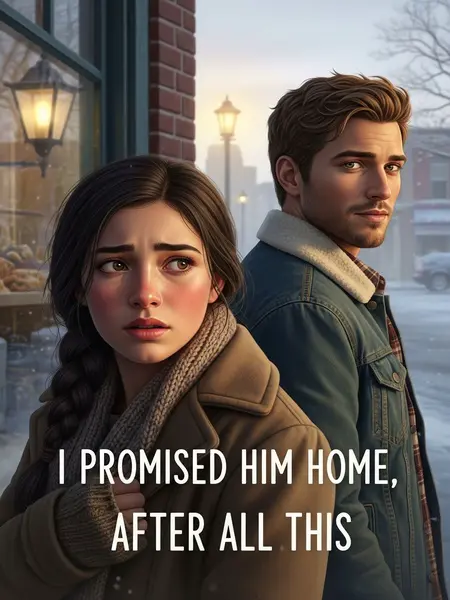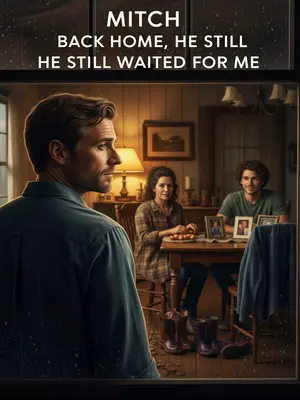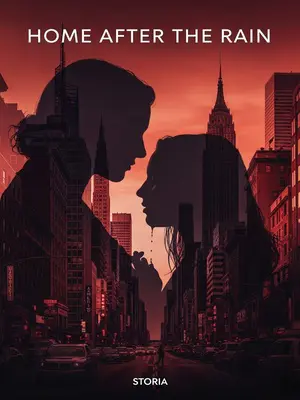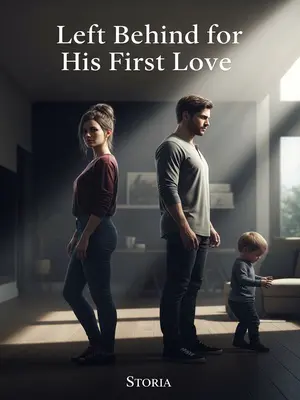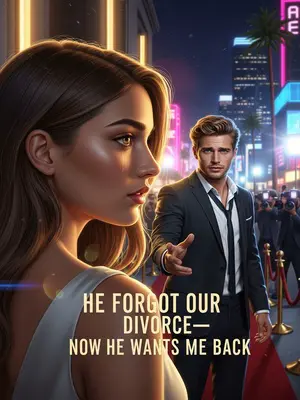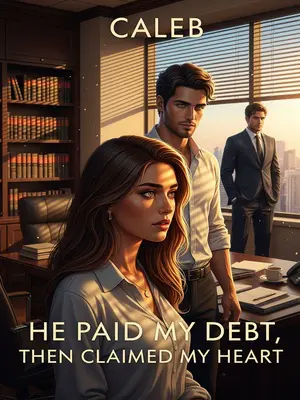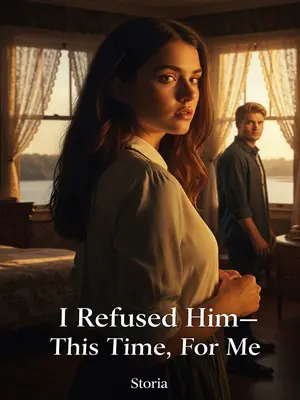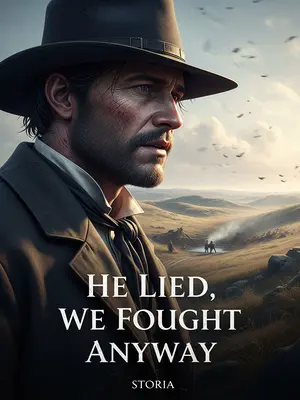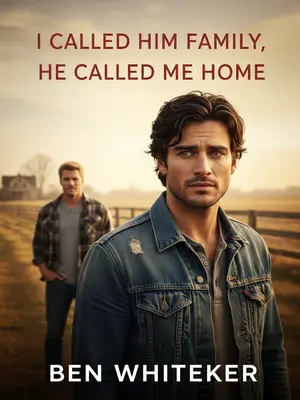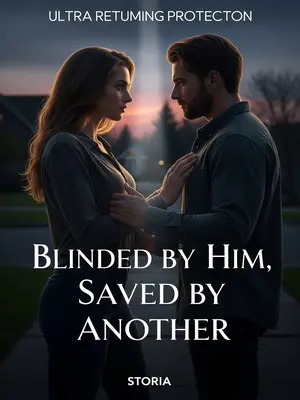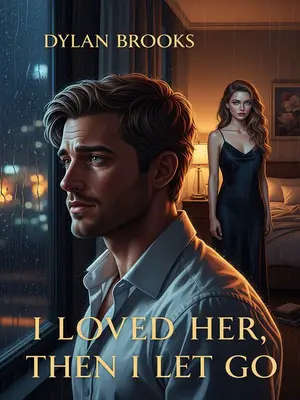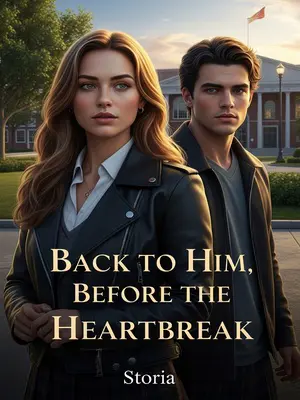Chapter 5: Hunger, Hope, and Hard Roads
"It’s been over a month."
Henry stretched, groaning as he looked out over the river. The air smelled of pine and mud, the sun beating down on our backs.
While the group took a break, Henry stood by the river and sighed, "We’ve been driving day and night, and finally made it to Pine Valley!"
He wiped the sweat from his brow and grinned, like he couldn’t believe we’d made it this far.
He grabbed the water bottle. I was about to warn him it was hot, but he gulped it down and immediately made a face from the heat.
He coughed, fanning his mouth. "Dang, that’s hot!"
I shook my head—he really was hopeless. I didn’t bother saying anything.
He never listened anyway. I handed him a napkin.
I scraped the moldy parts off a granola bar—probably not the best idea, but we were hungry—broke it in half, stuffed one half in my mouth, and handed the other to Henry.
We’d eaten better, but hunger makes you less picky. Henry took it without a word.
"Here."
He turned, took it, and bit off a big chunk.
He chewed thoughtfully, making a face, but finished it anyway.
…It was actually pretty tough on the teeth.
My jaw ached after a few bites, but I kept going. Wasting food wasn’t an option.
Grandpa always said, only drink bottled water, never eat spoiled food. But out here? Sometimes you just had to eat what you had.
I remembered his warnings, but shrugged them off. This was survival, not a picnic.
The granola bars were packed by Jamie before we left. Henry and I had been eating them the whole way—there was only one left, with just a few moldy spots. Wasting food always felt wrong, so we finished it off.
I could almost hear Jamie’s voice in my head, fussing over every meal. I missed him more than I wanted to admit.
A young guy from our group brought over a bowl of wild veggie soup. I ate the bar with the soup.
The soup was thin, but hot. It warmed my hands, if not my stomach.
Looking at the empty bowl, I thought that if Jamie saw his picky little Lila eating moldy bars and bland soup, he’d be shocked.
He’d probably faint, then scold me for a week. Honestly, I missed his fussing.
But that was just a thought. I used to tell him about my hardships to get his sympathy, but now that I was grown, I wouldn’t dare. If he knew, he’d feel bad—and I couldn’t bear that.
I kept my troubles to myself, not wanting to add to his worries.
Besides, Grandpa and Dad didn’t even have granola bars to eat in their youth!
They’d told stories of going hungry, of eating whatever they could find. My hardships were nothing in comparison.
What little hardship I suffered was nothing compared to them.
I finished my soup, grateful for every bite.
Henry finished two bowls of soup, then looked at me. "Lila, why are you just staring at your bowl?"
He thought I was sick of road food, so he patted my shoulder and said grandly, "Once we get past the woods, we’ll go hunting!"
He puffed out his chest, trying to sound brave.
I just nodded and squatted by the river to rinse out my bowl.
The water was cold, numbing my fingers. I watched the current for a moment, letting my thoughts drift.
I shook off the water and, seeing everyone was almost rested, told Henry, "We’ll head out in fifteen."
He saluted, then hurried off to pack up camp.
He quickly washed his own bowl, stacked it with mine, and went to get ready.
He whistled as he worked, his spirits lifted.
This trip, I only brought about ten people.
We kept our group small, blending in with the other travelers on the road.
Too many would attract attention. The mayor might be clueless, but the neighborhood associations weren’t. This trip to Silver Hollow was critical—we had to be careful.
We stuck to back roads, avoiding trouble whenever we could. No sense making things harder than they had to be.
With Grandpa holding down Maple Heights, I wasn’t worried about trouble at home.
I knew the family would be safe, no matter what happened out here.
But I had no idea what Quinn Foster’s attitude would be.
I’d heard rumors, but you never really know a person until you meet them face to face.
The letter Grandpa gave me was in a velvet pouch, hanging from my belt. I checked for it every hour, just to be sure.
I knew what it said.
The words were burned into my memory.
I’d even written the words myself:
North and South, together as one. The city united.
Simple, but powerful. A promise, not just a plea.
Besides the letter, the pouch also held a lock of white hair, cut from Grandpa himself, to swear by his life—if his words were false, he’d lose his head.
It was an old family custom, a way to show you meant business.
We didn’t deal in empty words. Grandpa’s hair was his bond.
No need for clever words with smart people. Once Quinn Foster saw Grandpa’s hair, he’d know we meant it.
He’d understand—some things are worth more than money.
Now, it was just a matter of whether he’d accept.
I tried not to worry, but the waiting gnawed at me.
Quinn Foster’s crew was camped in the woods at the edge of Pine Valley and Silver Hollow. He’d already taken Oakridge, but kept his main force in the hills, not the city.
Smart move—harder to attack, easier to defend.
I’d seen the map—he was stationed at a pass, easy to defend, hard to attack. That’s why, even knowing where he was, the old mayor of Silver Hollow could only rage at city hall and do nothing.
The mayor’s threats were just noise. Foster was untouchable for now.
"Lila!" Henry’s voice snapped me out of my thoughts. He tugged the leash of his big red dog. "Time to go!"
The dog barked, eager to get moving.
I turned and hopped into the truck. Only three days left to travel.
I adjusted my cap, ready for whatever came next. No turning back now.
We’d just eaten, so we didn’t rush. Behind us, the younger guys started singing—
"Don’t got no coat? I’ll share mine with you. When the boss calls us up, I’ll patch my shield and spear. I’ll fight by your side…"
Their voices rose and fell, carrying across the fields. It sounded like hope.
Henry and I exchanged a knowing smile.
We were all young—let them sing.
We let the music lift our spirits, just for a little while.
Soon, Henry joined in: "Don’t got no coat? I’ll share mine with you. When the boss calls us up, I’ll patch my armor. I’ll march with you…"
He sang off-key, but no one cared.
A hundred years ago, folks left home to defend their town.
I pictured old black-and-white photos, rows of young men in uniforms, waving goodbye.
A hundred years later, people still stood guard, always on alert.
We were part of a long line of people who refused to give up.
Mayors and councilmen came and went, troubles raged on, the rich feasted, fortunes faded.
History repeated itself, but hope never died.
Only the people suffered, year after year.
I wasn’t a saint, but I wasn’t heartless either.
Sometimes, that was enough.
Could North and South really unite?
I didn’t know, but I had to try.
It had to be done.
Thirty-Five
